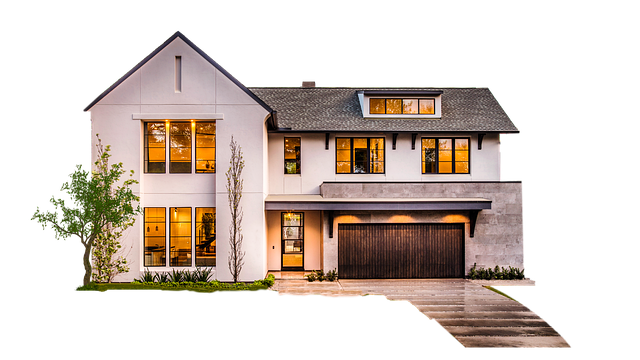The demand for sustainable security systems is rising due to environmental awareness, aiming to reduce carbon footprints of traditional energy-intensive tech. Leveraging smart technology, renewable energy, and efficient design, these eco-conscious solutions offer enhanced protection while minimizing environmental impact. Integrating IoT devices like smart security cameras and biometric access control, these systems transform from a niche concern into a necessity for homeowners and businesses, providing both robust security and ecological responsibility. Future advancements in solar-powered surveillance, AI analytics, and smart grids promise even more groundbreaking developments in sustainable security.
In today’s digital era, the need for robust yet environmentally conscious security solutions is paramount. Understanding eco-friendly security involves embracing sustainable practices that reduce environmental impact without compromising protection. This article explores key upgrades such as smart technology integration through IoT devices, energy-efficient systems, biometric access control, and delves into the future of eco-conscious security, highlighting innovations shaping the industry towards more sustainable security systems.
- Understanding Eco-Friendly Security: The Growing Need for Sustainable Solutions
- Smart Technology Integration: Enhancing Security with IoT Devices
- Energy-Efficient Security Systems: Reducing Carbon Footprint Without Compromising Protection
- Biometric Access Control: A Step Towards More Secure and Green Practices
- Future of Eco-Conscious Security: Innovations Shaping the Industry
Understanding Eco-Friendly Security: The Growing Need for Sustainable Solutions

In today’s world, where environmental consciousness is on the rise, the demand for sustainable security solutions has been steadily increasing. Traditional security measures often rely on energy-intensive technologies and materials, contributing to carbon footprints and ecological concerns. As such, there’s a growing need to embrace eco-friendly alternatives in the security sector, transitioning towards smarter and more sustainable security systems.
This shift is not just about reducing environmental impact but also optimizing resource utilization and minimizing operational costs. Eco-conscious security solutions leverage innovative technologies, renewable energy sources, and efficient designs to create robust yet environmentally friendly systems. By integrating smart features and embracing nature-inspired approaches, these upgrades offer a compelling blend of enhanced protection and ecological sustainability.
Smart Technology Integration: Enhancing Security with IoT Devices

The integration of smart technology has revolutionized sustainable security systems, allowing homeowners and businesses to enhance their safety measures while minimizing environmental impact. Internet of Things (IoT) devices play a pivotal role in this transformation by providing real-time monitoring capabilities and remote access control. Smart security cameras, for instance, offer crisp video footage and advanced analytics, enabling users to detect potential threats more efficiently.
These IoT devices are often equipped with energy-efficient features, reducing power consumption compared to traditional security systems. Additionally, they can be seamlessly integrated into smart home ecosystems, allowing users to automate and customize their security settings using voice commands or mobile apps. This not only simplifies security management but also contributes to a more eco-friendly approach to protecting properties.
Energy-Efficient Security Systems: Reducing Carbon Footprint Without Compromising Protection

In today’s digital era, sustainable security systems are no longer a niche concern but a necessity. Traditional security setups often consume significant amounts of energy, contributing to a substantial carbon footprint. However, advancements in technology have led to the development of smart, eco-friendly alternatives that offer robust protection while minimizing environmental impact. These innovative solutions incorporate energy-efficient devices and smart automation, allowing for reduced power consumption without sacrificing security measures.
One key aspect is the adoption of renewable energy sources. Solar panels and wind turbines can power security cameras, motion sensors, and access control systems, ensuring round-the-clock surveillance with minimal environmental disruption. Additionally, smart grid technologies enable efficient distribution and management of energy, further reducing overall consumption. Such sustainable security systems not only contribute to a greener planet but also offer long-term cost savings for homeowners and businesses alike, making them an increasingly attractive option in the pursuit of both security and ecological responsibility.
Biometric Access Control: A Step Towards More Secure and Green Practices

Biometric Access Control is a cutting-edge technology that offers a significant step forward in both security and environmental sustainability. This innovative system utilizes unique biological traits, such as fingerprints, facial recognition, or iris scans, to verify identity and grant access, eliminating the need for traditional keys or passwords. By implementing biometric systems, organizations can enhance their security measures while also contributing to a greener future.
Traditional access control methods often rely on plastic cards or codes, leading to significant environmental impact due to production, disposal, and associated waste. Biometric technology, however, reduces these environmental concerns as it doesn’t require physical tokens. Moreover, biometric systems provide advanced protection against unauthorized access, fraud, and identity theft, ensuring a secure environment for both people and assets. This dual benefit of enhanced security and sustainability makes biometric access control an attractive option for businesses aiming to adopt sustainable security systems.
Future of Eco-Conscious Security: Innovations Shaping the Industry

The future of security lies in harmonious coexistence with the environment, giving rise to a new era of sustainable security systems. As awareness about climate change grows, so does the demand for eco-friendly solutions across various industries, and security is no exception. Innovative technologies are now leading the charge in this transformation, offering advanced protection while minimizing environmental impact. From solar-powered surveillance cameras to AI-driven analytics that optimize energy usage, these breakthroughs showcase a commitment to both security and ecological preservation.
This shift towards green security practices involves intelligent design and resource efficiency. For instance, smart access control systems reduce energy consumption by automating processes like lighting and temperature adjustments in secure areas. Additionally, the integration of renewable energy sources not only lowers operational costs but also contributes to a greener planet. As these innovations mature, we can expect even more groundbreaking developments that redefine security without compromising sustainability.
As we look towards a more sustainable future, the integration of smart and eco-friendly security upgrades is not just an option but a necessity. The discussed innovations in IoT devices, energy-efficient systems, biometric access control, and emerging technologies demonstrate that protecting our spaces can be harmonious with environmental stewardship. By embracing these sustainable security systems, we can create safer, more secure environments while mitigating our ecological impact. This shift towards greener practices is not only beneficial for the planet but also strengthens the overall resilience of communities worldwide.
